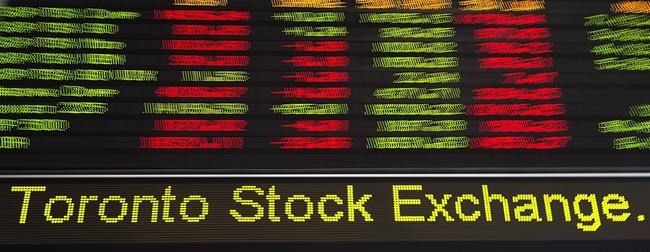TORONTO — Canada's main stock index closed out 2020 in positive territory for the year despite a late sell-off on New Year's Eve that transformed what had been a day of gains into one printed in red ink.
Meanwhile, in the United States, stock markets continued to post record or near-record results as they have for most of this last week of the year.
Most Canadians would likely be surprised to hear that Toronto's S&P/TSX composite index managed to eke out a net 370-point gain, about 2.17 per cent, over the past 12 months, said Allan Small, senior investment adviser at HollisWealth.
"Because of the virus and the headlines and the newscasts and what we see and read online has been so negative for pretty much the whole year, to find out our major stock exchange can actually show a positive number at the end of the year, I think, would be surprising to most," he said Thursday.
"But, when you talk to those living south of the border, in the United States, you would say our index actually significantly underperformed the U.S. indices."
The composite index closed down 112.45 points at 17,433.36 as modest gains in financial company stocks failed to offset negative sentiment in the rest of the market. It closed out 2019 at 17,063.43.
Meanwhile, in New York, the Dow Jones industrial average was up 196.92 points to a new record of 30,606.48 on Thursday and the S&P 500 index was up 24.03 points to 3,756.07, also a record.
The Nasdaq composite was up 18.28 points at 12,888.28.
For the year, the S&P 500 index gained 16.3 per cent, the Nasdaq composite, powered by Big Tech stocks, soared 43.6 per cent and the Dow Jones industrial average gained 7.2 per cent.
Small said the results demonstrate the resilience of the market and the confidence investors have as they enter 2021.
"If you were to describe the worst-case scenario for us as investors you would probably describe the environment that we just went through, people losing jobs, people fearful to leave their homes, people losing their businesses, bankruptcies, governments spending money out of control at times to try to help individuals," he said.
"Yet the stock market is still at all-time highs. So that should tell investors we are resilient. Next time we face a crisis, they should remember 2020 and what we just went through."
Markets were mostly quiet on the final day of trading for the year. Several overseas markets were closed for holidays, and U.S. and Canadian markets will be closed for New Year's Day on Friday.
Financials wound up as the only positive sector out of 11 on the Toronto Stock Exchange Thursday as a broad-based sell-off hit materials and energy the hardest despite gains in commodity prices.
Top financial performers were Element Fleet Management Corp., up 2.14 per cent, and Great-West Lifeco Inc., up 1.44 per cent.
The Canadian dollar traded for 78.54 cents US compared with 78.31 cents US on Wednesday. At the end of 2019, it traded for 76.99 cents US.
The most heavily traded companies in Toronto were Cenovus Energy Inc. and Husky Energy Inc., down 1.15 per cent and 1.25 per cent, respectively. Cenovus's friendly takeover of Husky is expected to formally close on Friday and the latter's shares will then be delisted.
The February crude contract settled up 12 cents US at US$48.52 per barrel and the February natural gas contract was up 12 cents US at nearly US$2.54 per mmBTU on Thursday.
The February gold contract was up US$1.70 at US$1,895.10 an ounce and the March copper contract was down three cents US at about US$3.52 a pound.
-- By Dan Healing in Calgary.
This report by The Canadian Press was first published Dec. 31, 2020.
Companies in this story: (TSX:GSPTSE, TSX:CADUSD=X, TSX:EFN, TSX:GWO, TSX:CVE, TSX:HSE)
The Canadian Press



